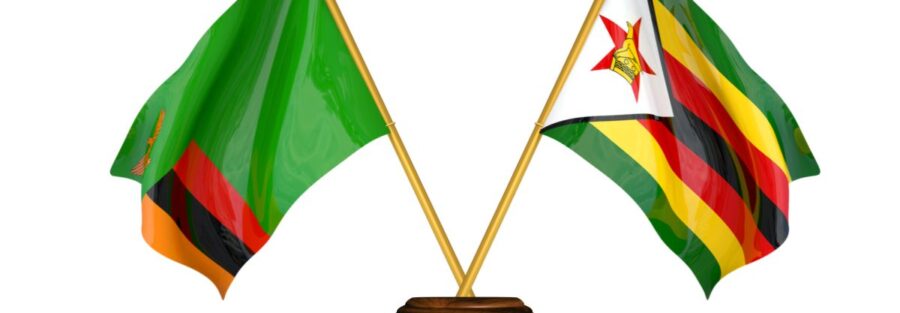Relations between Zimbabwe and Zambia predate the two countries’ independence when the then Southern Rhodesia (present-day Zimbabwe); Northern Rhodesia (now Zambia); and Nyasaland (now Malawi) belonged to the federation of Rhodesia and Nyasaland.
Following the break-up of the Federation, Zimbabwe and Zambia continued to enjoy a strong bond of friendship with the latter, which had attained its independence in October 1964, playing host to Zimbabwe’s own liberation movements, the Zimbabwe National Liberation Army (ZANLA) and Zimbabwe People’s Revolutionary Army (ZIPRA) , together with liberation movements from all other Southern African countries namely South Africa, Namibia, Mozambique and Angola which were also variously fighting for their independence.
At the attainment of Zimbabwe’s independence in April 1980, the two neighbouring sister Republics (Zimbabwe and Zambia) established diplomatic relations at Ambassadorial level, with Zimbabwe opening its diplomatic Mission in Lusaka in 1980.
Since then, relations between the two countries have continued to grow in both strength and scope. In spite of Zimbabwe and Zambia sharing a common boundary, in the form of the mighty Zambezi River, which has earned them the identity of the world’s famous ‘’Siamese twins’’, the two countries also share a common culture and heritage, deriving mainly from intermarriages and other socio-cultural exchanges. Zimbabwe and Zambia’s economies are also intertwined, with both being agro-based and the countries also being rich in a wide array of minerals, attributes that have, over the years, seen the countries seize each other’s comparative advantage to develop and grow their economies, a relationship that has continued to manifest itself through sustained trans-boundary trade and investment.
There also exists several instruments which provide a framework for deepening and broadening cooperation between the two countries. These, at Government level, include the Joint Permanent Commission of Cooperation and the Joint Permanent Commission on Defence and Security, which in addition to other fora, provide platforms for regular exchanges between the two countries in strengthening their cooperation in various fields that include, but are not necessarily limited to tourism, culture, education, environment, immigration and many other.
The Joint Permanent Commission on Cooperation (JPCC) between Zimbabwe and Zambia which had been outstanding since 2018 was held from 13 to 15 March 2024, in Harare, Zimbabwe. The JPCC witnessed the signing of two MOUs under the Economic Cluster namely; the Tripartite MoU between the Zimbabwe Investment and Development Agency (ZIDA), Zambia Development Agency and ZimTrade for cooperation in trade and investment promotion between the two countries and an MoU between the Zimbabwe National Chamber of Commerce and the Zambia Chamber of Commerce and Industry.
Zimbabwe and Zambia have also, over the years, been consistent in their participation in each other’s events of national and economic significance, notably trade fairs, cultural exhibitions, sporting events, among others.
Underlining the long-standing relationship between the two counties is the existence in Zambia of five established Zimbabwe liberation war shrines at Chikumbi (Freedom Camp); Nampundwe; Old Mkushi; Mulungushi and Kavalamanja. There are also several other sites around Zambia, including Solwezi; Sinde and Kabanga, which are known to have been occupied by Zimbabwe’s freedom fighters and where the remains of those who fell during the country’s liberation war are buried.
Guided by the long-standing historical relationship between the Republic of Zimbabwe and Zambia, the Embassy of Zimbabwe in Lusaka, in collaboration with the National Heritage Conservation Commission (through the Ministry of Tourism and Arts) of the Republic of Zambia, and the National Museums and Monuments ( through the Ministry of Home Affairs and Cultural Heritage) of the Republic of Zimbabwe as well as other stakeholders, are very much seized with the development of these liberation war sites, through a Memorandum of Understanding on Cooperation, between the two countries, in the Management and Preservation of Sites of Zimbabwe Freedom War Graves for their historical, posterity, educational, regional cooperation and tourism significance.

